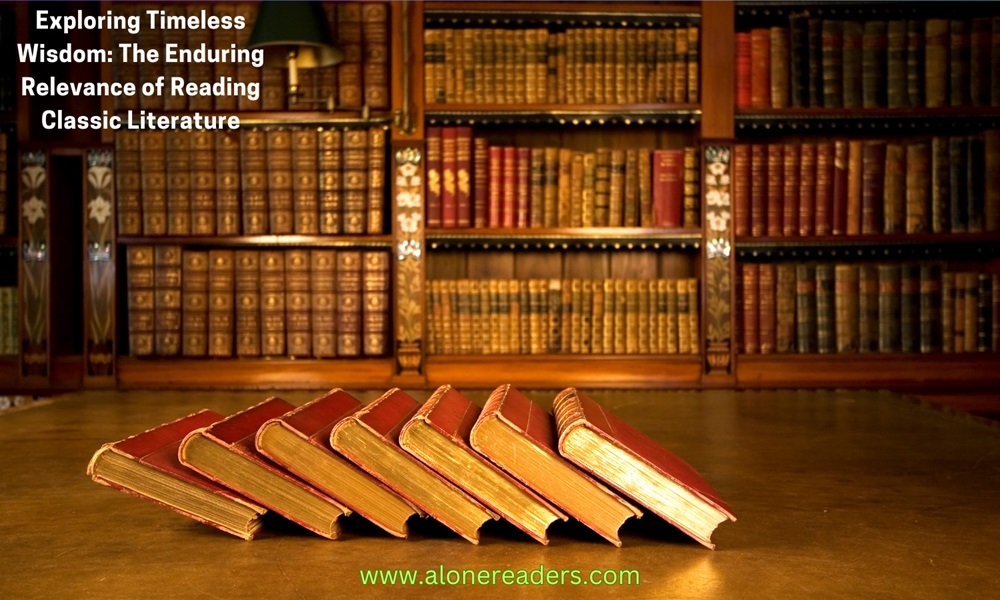
In our fast-paced, technology-driven world, where trends come and go in the blink of an eye, it might seem like reading classic literature belongs to a bygone era. Yet, these enduring works continue to hold a significant place in the fabric of education and personal development. The question arises: Why is reading classics still relevant in the modern age? The answer lies in their timeless wisdom, deep insights into the human condition, and the unchanging nature of many societal and personal challenges they address.
Classic literature, often penned centuries ago, serves as a window into the past, offering us a glimpse into the lives, thoughts, and struggles of people from different eras. These narratives, steeped in historical contexts, provide a deeper understanding of the societies that shaped them. This historical perspective is invaluable in understanding our own time. The classics often tackle universal themes like love, war, human nature, and societal structures, themes just as pertinent today as they were when they were written. This continuity of human experience makes these stories relatable and relevant, even in our contemporary context.
Moreover, classic literature is a cornerstone of cultural literacy. By reading works like Homer's "Odyssey," Shakespeare's plays, or the novels of Jane Austen, we gain insights into different cultures, customs, and philosophies. This cultural exposure broadens our perspectives, allowing us to appreciate diversity and develop empathy. In an increasingly globalized world, such cultural understanding is more important than ever. It helps us navigate the complexities of a multicultural society and fosters a sense of global citizenship.
The language of classic literature also offers unique benefits. These texts, often rich in prose and poetry, challenge the reader with complex vocabulary and intricate sentence structures, unlike the more straightforward language typically found in contemporary literature. This linguistic complexity encourages cognitive development, improving memory, analytical skills, and even empathy. The mental effort required to understand and appreciate these works stimulates intellectual growth and encourages critical thinking, a skill invaluable in all aspects of life.
Furthermore, classic literature often deals with ethical dilemmas and moral questions that are still relevant today. By exploring these themes, readers are prompted to reflect on their own values and beliefs. This introspection is crucial for personal development and moral reasoning. Through the trials and tribulations of characters in classics, readers learn about resilience, integrity, and the complexity of human nature. These lessons are timeless and continue to provide guidance in a modern world that often grapples with similar ethical quandaries.
Another aspect that keeps classic literature relevant is its influence on modern culture. Many contemporary works of literature, film, and art draw inspiration from classic narratives and themes. By reading the classics, one gains a deeper appreciation and understanding of modern culture and media. This intertextuality enriches the experience of modern art and entertainment, revealing layers of meaning and historical context that might otherwise go unnoticed.
In addition, reading classic literature is a form of intellectual heritage. These works have shaped the thoughts and writings of countless thinkers and writers over the centuries. Engaging with these texts connects us with a broader intellectual tradition, allowing us to participate in conversations that span generations. It's like engaging in a timeless dialogue with some of the greatest minds in history. This connection to the past enriches our understanding of the present and informs our visions for the future.
Lastly, the joy and beauty of reading classics should not be understated. These works have stood the test of time not only because of their intellectual and cultural significance but also because of their ability to captivate and inspire. The storytelling, the character development, and the emotional depth found in many classic works offer a reading experience that is both enriching and enjoyable. The pleasure of reading, after all, is a timeless pursuit, and the classics provide a rich source of this pleasure.
In conclusion, the relevance of reading classic literature in the modern world is manifold. From providing historical and cultural insights to fostering cognitive and moral development, from influencing modern culture to connecting us with our intellectual heritage, the classics offer a wealth of benefits. They are not just relics of the past but living texts that continue to enlighten, challenge, and delight. In a world that is constantly changing, the timeless wisdom found in classic literature remains a constant source of knowledge and inspiration.